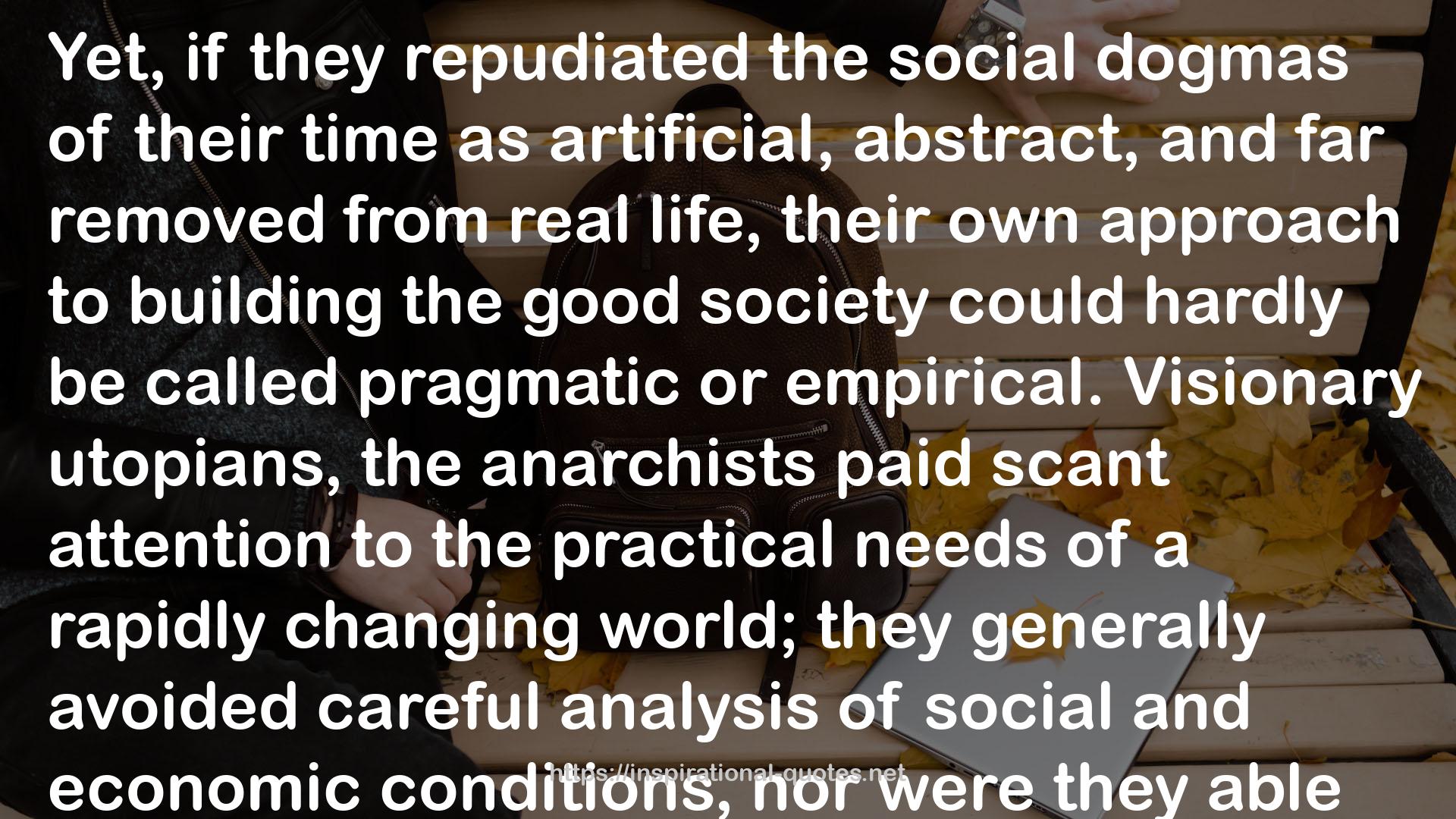" Yet, if they repudiated the social dogmas of their time as artificial, abstract, and far removed from real life, their own approach to building the good society could hardly be called pragmatic or empirical. Visionary utopians, the anarchists paid scant attention to the practical needs of a rapidly changing world; they generally avoided careful analysis of social and economic conditions, nor were they able or even willing to come to terms with the inescapable realities of political power. For the religious and metaphysical gospels of the past, they substituted a vague messianism which satisfied their own chiliastic expectations; in place of complex ideologies, they offered simple action-slogans, catchwords of revolutionary violence, poetic images of the coming Golden Age. By and large, they seemed content to rely on "the revolutionary instincts of the masses" to sweep away the old order and "the creative spirit of the masses" to build the new society upon its ashes. "Through a Social Revolution to the Anarchist Future!" proclaimed a group of exiles in South America; the practical details of agriculture and industry "will be worked out afterwards" by the revolutionary masses. Such an attitude, though it sprang from a healthy skepticism towards the ideological "blueprints" and "scientific laws" of their Marxist adversaries, could be of little help in setting a course of action designed to revolutionize the world. "
― Paul Avrich , The Russian Anarchists
